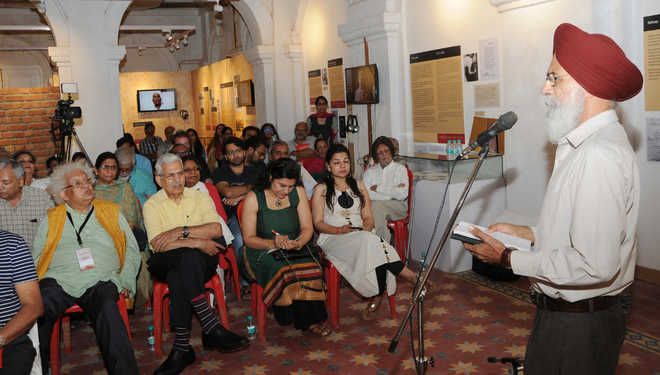Divya Sharma
Tribune News Service
Amritsar, August 17
As part of the opening ceremony of the world’s first Partition Museum, a panel discussion was organised to deliberate upon the trauma faced by Punjab and the healing process the state went through literature. The panel discussion was followed by a cultural night.
Most of the experts stressed on the reactions of Punjabi and Urdu writers on Partition and the kind of effect it had on these languages that were prominent in the undivided Punjab.
The event titled as “Chalo Amritsar, Partition Remembrance Day”, saw a number of attendees joining in for the panel discussion, helmed by noted publisher Urvashi Butalia. The panelists included author Khushwant Singh, prominent journalist Nirupma Dutt, Poonam, the editor of Punjabi magazine “Preetlari” and Rakhshanda Jalil, writer and literary historian.
Stressing on the kind of impact Partition had on poets and writers in Urdu language. Jalil said, “The biggest loss is that Punjab has lost Urdu. Not much has been written by Urdu writers or poets of the Partition era. Urdu has limited literature to show when it comes to Partition Museum.”
The event also saw a special session by famous Punjabi poet Surjit Patar. He recited his famous poems and talked about the limited volume of poetry on Partition.
Talking about how Punjabi played a healing role in alleviating the pain of Partition, Dutt said, “Punjabi is a common thread. It connects Punjabis from both sides of Punjab. As Punjabis, we are the same people. Urdu and Punjabi languages had their own healing effect.”
Author Khushwant Singh said, “Fiction played an important role in helping people to cope up with the losses. It is perceived differently by each one of us. ”
Panelist Poonam narrated the stories of Preet Nagar, a locality which had houses of famous Punjabi, Hindi and Urdu writers and artistes in the pre-Partition era. Kishwar Desai, the mind behind the Partition Museum in Amritsar, said, “By holding such events, the idea is to promote the museum as a place of Partition memorabilia.”
A sufi musical night was presented by Hasmat Sultana sisters.
Unlock Exclusive Insights with The Tribune Premium
Take your experience further with Premium access.
Thought-provoking Opinions, Expert Analysis, In-depth Insights and other Member Only Benefits
Already a Member? Sign In Now










